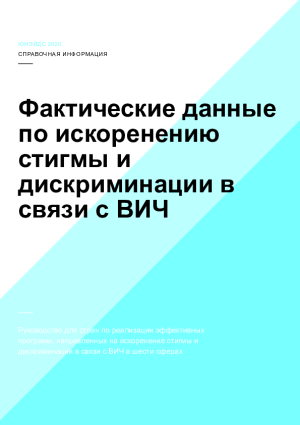Фактические данные по искоренению стигмы и дискриминации в связи с ВИЧ — Руководство для стран по реализации эффективных программ, направленных на искоренение стигмы и дискриминации в связи с ВИЧ в шести сферах
В этом отчете рассматриваются последние данные о том, что является эффективным в снижении стигмы и дискриминации в связи с ВИЧ в рамках ключевых программ по снижению уровня стигмы и дискриминации и расширению доступа к правосудию в шести основных сферах деятельности Глобального Партнерства.

